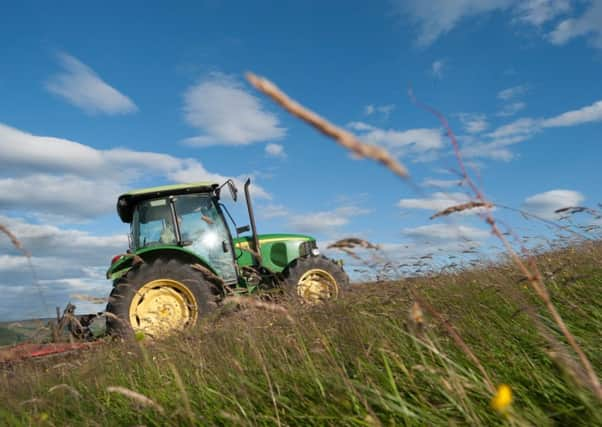MPs want lasting protection for farm funds in policy shake-up


When Britain leaves the European Union, it will no longer be governed by the EU’s Common Agricultural Policy which annually pays £3bn in subsidies to UK farmers, mostly awarded directly based on the amount of land they have.
In its recent ‘Health and Harmony’ consultation paper, the Government proposed to instead focus those payments on farmers’ delivery of “public goods”, such as creating wildlife habitat, protecting landscapes, reducing flooding and improving air quality.
Advertisement
Hide AdAdvertisement
Hide AdBut the parliamentary Environment, Food and Rural Affairs (Efra) Committee wants the Government to make bolder financial promises to safeguard funding beyond 2022, and the post-Brexit transition of moving farming to a new system of support.
In a report published today, the committee said: “We are concerned to hear that there have been minimal discussions between Defra (the Department for the Environment, Food and Rural Affairs) and the Treasury over the future funding of the new agricultural policy.”
It continues: “The Government should commit... to fully fund the future agricultural policy and ring-fence the funds that are released from the withdrawal of direct payments to fund the rural economy and the enviroment.”
MPs on the committee also want consideration to be given to new support mechanisms for farms, including tax breaks and capital grants to drive investment in technology that can boost farming’s productivity.
Advertisement
Hide AdAdvertisement
Hide AdTheir report explains how 42 per cent of farms are not profitable without direct payments and with grazing livestock, cereal and mixed farms likely to be the worst affected by those payments ending, the Government should produce a thorough impact assessment of removing payments so support can be targeted where it will be needed most.
MPs also say there is broad support for animal health and welfare to be among the “public goods” that receive public money and that Defra should commit to exploring how this could be achieved through trials during the transition period.
MPs also want trade agreements with other countries to demand that imported products meet British standards, and that a “race to the bottom” on standards is avoided if the Government pursues self-regulation and potential deregulation after Brexit.
MP Neil Parish, the committee’s chairman, acknowledged that Defra’s consultation on future policy was “ambitious” and he welcomed much of its intent, but, he said: “There is a notable lack of detail in the Government’s paper... and we seek more clarity on funding, delivery and timing.
Advertisement
Hide AdAdvertisement
Hide Ad“The Government risks not achieving its ambition and risks damaging the sector.”
Reacting to the report, Tim Breitmeyer, president of the Country Land and Business Association, said the Government should focus on a plan for boosting farm profitability.
“Getting this aspect of post-Brexit right must be considered to be a vital precondition of any moves to remove the basic payment system with a clear strategy, worked up and funding allocated.”
A Defra spokesperson said: “We have set out ambitious proposals to raise productivity and move away from land based subsidies so we can reward farmers for the public goods they provide.
Advertisement
Hide AdAdvertisement
Hide Ad“We have committed to match the £3bn in farm support until the end of this Parliament in 2022, followed by a longer agricultural transition period to give farmers time to adapt. We had more than 44,000 responses to our consultation which we are analysing before bringing forward an Agriculture Bill later this year.
“We welcome the support shown by the Efra Committee for this consultation and will respond to their report in due course.”